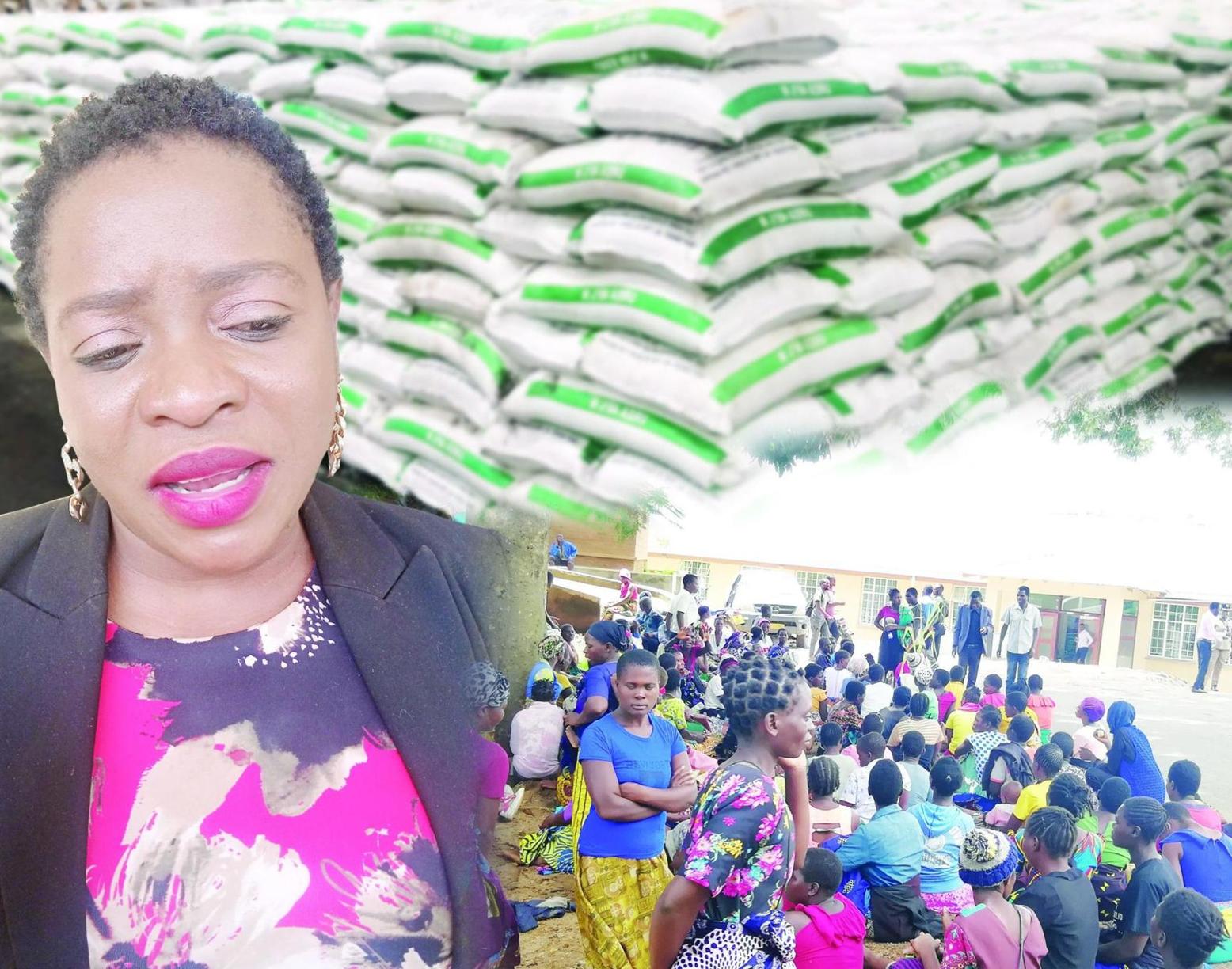Africa-Press – Malawi. On January 20, beneficiaries of the Affordable Input Programme (AIP) in Mchinji besieged the District Agriculture Office demanding answers why fertiliser was not being supplied to their area.
On January 31, beneficiaries of the programme in Chiradzulu descended on, the District Commissioners office demanding that they get back their K30,000 fertiliser redemption fees as government has failed to supply the fertiliser.
The two cases are among many characterising the awful implementation of the programme this season. And an investigation by the Ombudsman has found a range of failures from procurement, distribution to sales that have marred the programme.
Ombudsman Grace Malera released the preliminary findings of the investigations yesterday at Mponela in Dowa district. According to the report, the programme has suffered from poor planning.
It has also been weighed down by low levels of preparedness and inefficiencies in the supply chain management and actual delivery. The report questions the role of MPs in the programme.
During the meeting, it was learnt that some MPs were selling AIP fertiliser in their shops. Others were using Constituency Development Fund (CDF) to transport the commodity when the government was entirely responsible for transportation logistics.
Their role was not defined, says the report, leading to challenges in the collection and distribution of inputs. It says although some beneficiaries were scanned, they have not redeemed the inputs to-date.
The Ministry of Agriculture said on January 31, 2023 that the redemption rate was 68.04 percent. “However, this is not clearly reflected on the ground,” reads the report, urging proper data collection in this regard.
Further, the programme faced untimeliness with respect to implementation period with most selling points failing to get inputs at a critical point in the season.
“There have been systemic delays in all implementation stages of the programme and these are detrimental to the whole programme.
“While the government’s decision to have SFFRFM as a sole supplier of fertiliser was a good strategy, the capacity of SFFRFM to undertake the task is questionable considering the gaps with respect to preparedness and actual delivery,” the report reads.
Among others, the report recommends that the AIP implementation should start in September of each growing season so that farmers are well prepared. It also recommends that the Ministry of Agriculture and SFFRFM should consider increasing personnel in selling the inputs.
The ombudsman further wants the ministry to ensure consistent and adequate supply of fertiliser so that the rights of the beneficiaries are not violated.
Following reports that some duty bearers were involved in abusing the system, the Ombudsman has asked the Ministry of Agriculture to work with the Ministry of Local Government to identify all local leaders involved indue sanctions. The report has further thrown out the use of clubs in buying the inputs saying the procedure has proved ineffective.
In an interview Malera said the challenges associated with the AIP planning and delivery have not been mitigated thus far despite that they have been prevalent throughout the programme this year. “There still remains a significant number of intended beneficiaries who have not accessed the AIP inputs due to limited availability of the inputs coupled with the delays in delivering the inputs especially fertiliser.
“This has implications on the yields to be realised and in turn the attainment of food security as well as poverty reduction in Malawi,” Malera said.
She also added that “the planning and governance systems for the AIP programme need to be revisited to ensure improvement in the responsiveness, utility, accountability, transparency and effective stakeholder involvement in the programme.”
“We want the authorities to act on these challenges and not just ignore them,” Malera added.
AIP coordinator in the ministry, Justin Kagona, admitted that most of the issues raised in the report were a reflection on the ground. He said the ministry would be looking into them.
Centre for Social Accountability and Transparency (Csat) has been monitoring AIP implementation and its Executive Director Willy Kambwandira said it was encouraging that the coordinator for AIP has agreed with the observations in the report.
“We have also been on the ground monitoring the implementation of the AIP. We agree with the observations by the Office of Ombudsman, and we are happy that the coordinator of the AIP has also acknowledged these challenges. It is clear from the findings that AIP flopped, and the findings expose poor planning.
“It is also clear from the findings that government’s approach to this season’s AIP has been reactive, and this exposed beneficiaries to exploitation,” Kambwandira said.
Under the 2022-2023 season, the government had earmarked 2.5 million beneficiaries out of whom 2.4 million were to get fertiliser and cereal seed while the remaining from Chikwawa, Nsanje, Balaka and Rumphi were to get goats. The programme was allocated K109 billion.
For More News And Analysis About Malawi Follow Africa-Press






